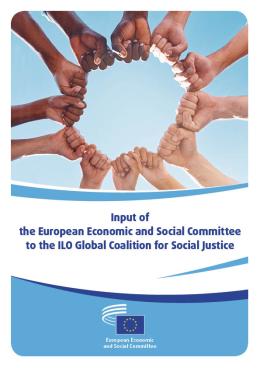European Economic
and Social Committee
América Latina y el Caribe
El CESE ha trabajado con organizaciones equivalentes de América Latina y el Caribe desde los años noventa del siglo pasado. Varios dictámenes del CESE han tratado sobre las relaciones con esta región a nivel regional, subregional y nacional. Entre las prioridades del CESE se incluyen el desarrollo de las organizaciones de la sociedad civil, el desarrollo económico y social, la integración regional y la cooperación en la esfera multilateral.
A nivel regional, el CESE organiza reuniones bienales entre representantes de las organizaciones de la sociedad civil en Europa, América Latina y el Caribe, como uno de los actos preparatorios previos a la Cumbre UE-CELAC.
A nivel subregional y nacional se han creado varias estructuras. En 2009, el CESE creó una Mesa Redonda de la Sociedad Civil con el Consejo de Desarrollo Económico y Social (CDES) de Brasil, con el fin de proporcionar un foro para el diálogo y la cooperación continua entre representantes de la sociedad civil europea y brasileña. El Acuerdo de Asociación UE-Chile otorgó al CESE el mandato de crear un Comité Consultivo Conjunto UE-Chile, establecido finalmente en 2016, junto a la sociedad civil chilena con el objetivo de supervisar el acuerdo. En lo que respecta a los países de la Comunidad Andina, el CESE participa en el Grupo Consultivo Interno que supervisa el Acuerdo de Libre Comercio entre la UE y Colombia, Perú y Ecuador. También participa en el Comité Consultivo Cariforum-UE que supervisa el Acuerdo de Asociación Económica Cariforum-UE. Se han establecido relaciones permanentes con los equivalentes institucionales del CESE en el Mercosur (el Foro Consultivo Económico-Social) y en Centroamérica (el Comité Consultivo del Sistema de la Integración Centroamericana).

